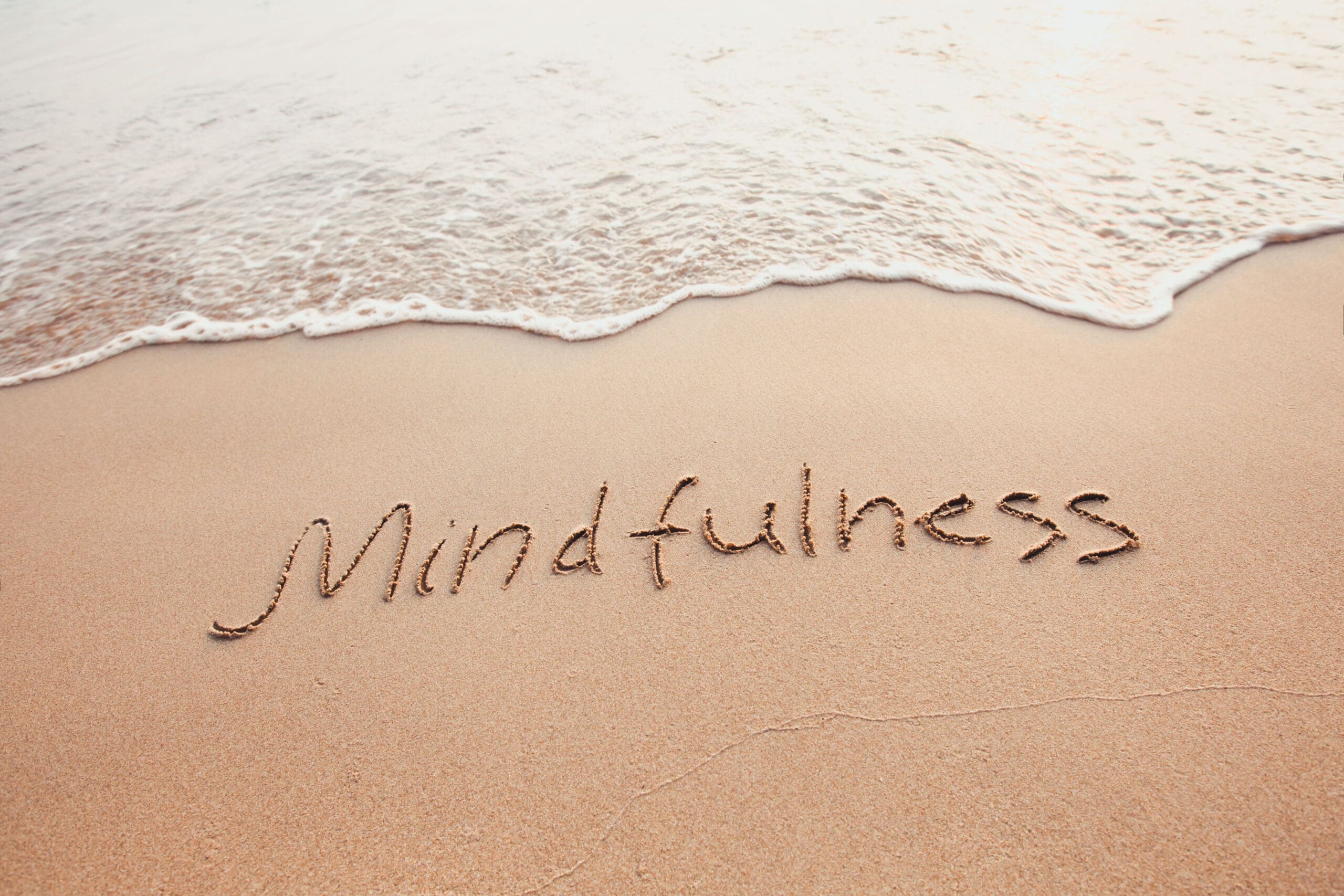
These days, its all about yoga and meditation, and now mindfulness. While the word gets thrown around a lot, its not always well understood. Here’s some basic info.
What does mindfulness mean?
While it might seem like there’s more to it, the basic act of mindfulness, is simply being aware of yourself. According to the American Psychological Association, mindfulness is “awareness of one’s internal states and surroundings.” It goes on to explain, “Mindfulness can help people avoid destructive or automatic habits and responses by learning to observe their thoughts, emotions, and other present-moment experiences without judging or reacting to them.”
The idea is that as people, we often don’t pay attention to ourselves, or what we’re doing. We get stuck in cycles, both in our regular actions, and our reactions. This leads to going in circles behaviorally. A person might know something is off, or want something to be different; but is too inattentive to how they’re working internally, to make it happen.
We think about what happened yesterday, or what we’re worried about tomorrow. We think about what other people are doing, or what we think we should be doing. We think about what we want, or don’t have; over what we are, or already have. All of this means not being present in current reality; and mindfulness is about being in reality right now.
Mindfulness, is therefore about paying attention to the details of ourselves, at the current moment. Knowing how we personally respond to things, and our own patterns of behavior; with the thought that if we are cognizant of these things in our conscious mind, that there’s a better chance of making meaningful and lasting changes, instead of repeating cycles.
Mindfulness is practiced in several different ways, generally as an attachment to something else. Like mindfulness meditation (possibly the most popular version), mindfulness-based cognitive behavior therapy, and mindfulness-based stress reduction. For some, it might not be more than going through life, with a bit more self-awareness. In all cases, though, the participant must keep track of how they feel and respond, in different parts of life.
How do you actually practice mindfulness?
There are a lot of buzz words in life, and right now, mindfulness is one of them. But simply throwing out that people should be more mindful, doesn’t really explain how to do it. It’s obviously more than telling someone to ‘be aware,’ because if that were it, we’d all be pros immediately. The problem with buzzwords is that people like passing them around, but often don’t understand what they’re passing around.
And that leaves people to pretend they understand more than they do. These terms become standard and ubiquitous, and no one ever wants to admit that they don’t understand the thing everyone is talking about. I expect a decent percentage of those saying they practice mindfulness activities daily, probably won’t be able to give a definition for what this means, or explain how exactly what they’re doing, is now different. Even the APA page, gave no further explanation for how to practice this.
Do we sit and think about whether something makes us feel happy or sad, or something else? Do we think about every action and how we respond? Do we look at our overall processes when it comes to how we respond to different life stimuli? Do we need to be able to verbally explain it, or is okay to have a sense or feeling?
The reality is that there are no rules, or specific guidelines. All of these things can be a part of it, from paying attention to our own responses and feelings, to being able to explain these things. Specific programs might have their own bullet points to follow, or tips for how to achieve a better response; but beyond this, there is nothing more finite to offer.

Can awareness be taught?
This all brings us to the pesky question of whether this kind of awareness can be taught at all. I mean, realistically, we are taught to be aware in life. That’s why we generally don’t wander out into traffic, or drive our cars into the side of the road for nothing. It’s why we go to the doctor when something feels off, and how we interpret the behavior of a loved one. We might do these things to varying degrees, but they all represent some form of awareness. So we are aware.
Now think of all the times you were told something in life, that just didn’t stick. Think of all the times you’ve tried to tell someone else something, and it just didn’t stick. Do you think its possible to simply make something stick because you want it to? Or does the eventual understanding of a concept result more from time and experience?
I was told about the importance of working out and eating well, when I was younger. Repeatedly, and with detail, over years of time. You know what made it stick for me? Simply wanting to look better. I spent years understanding and being aware of these ideas, hell they always made perfect sense. But I wasn’t ready to use them until a certain point. At that point, everything crashed into place. But before that? I probably frustrated most people trying to get through to me. And it probably seemed like I just wasn’t aware.
There’s also the issue of different kinds of awareness. Being aware in one realm, might not help in another. A great driver needs to be extremely aware of the road and other drivers. But this doesn’t mean they’re going to understand why their significant other is mad at them. Denials run deep in life, and its quite possible to be fully aware of some aspects of oneself, and then blind to others.
Does mindfulness work?
Up until a few years ago, you probably never heard the word mindfulness, because it wasn’t a popular buzzword yet. However, the idea is not new. It goes back to Hindi and Buddhist traditions. It’s based on ideas of zen (a thought process that involves self-restraint, meditation, and insights), Vipassanā, (a concept of calm and serenity), and meditation techniques from Tibet.
It should be remembered, that much like with meditation, just because something gets popular in Western culture, it doesn’t mean its understood or practiced correctly. And it should be remembered that these are practices started by groups of religious men who often went to (unnecessary) extremes related to things like food deprivation, self-inflicted pain, and social isolation. These guys were/are all about making some aspects of life harder and more painful, regardless of the reason why. I mean, would you even consider setting yourself on fire for anything?

Does it honestly seem like we’re going to be practicing the same things? Does it really seem like the life of a standard American is even remotely similar to the lives of monks? And should we be trying so hard to copy their practices? One of the issues with the idea of meditation (and I’m sorry for whoever doesn’t like this), is that there is great debate over any actual effects; with large scale studies often unable to back up that there is any change in consciousness, brain activity, or to verify progress.
So does any of this work? There’s no answer here, and the reality is that most things of this nature are person by person. A person can make progress without knowing why, or what they did, or if it was just a simple passage of time. We often assign progress or benefit to what we think caused it, but the reality is, we often have no answer for anything. So if it works for you, keep doing it. But if you’re trying and trying, and thinking you’re just not getting it right…move on to something else.
Conclusion
Having said all this, anything to help a person is good; and its nearly impossible to say what will work for a given person. If its mindfulness, great! If its exercise, great! If its therapy, great! Perhaps the most important thing is to understand that sometimes in order to help ourselves, we need to try different things. And the bigger answer is that it might be less important to understand exactly why something happened, than simply being aware enough to repeat what works.
Thanks for joining in! We welcome you to Cannadelics.com, where we report on the growing wellness space. Visit us frequently to catch current stories; and subscribe to our Cannadelics Weekly Newsletter, for the best news and product offers, all at once.






